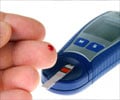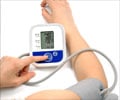Q: Which doctor should I consult for high blood pressure?
A: You should consult a general physician for treating high blood pressure.
Q: How do I know if I have high blood pressure?
A: High blood pressure often has no signs or symptoms. The only way to find out if you have high blood pressure is to be tested for it.
Q: How does high blood pressure affect our body?
A: Effects of Hypertension on the body:
- Stroke — Very high blood pressure can cause a break in a weakened blood vessel, which then bleeds in the brain. This can cause a stroke. If a blood clot blocks one of the narrowed arteries, it can also cause a stroke.
- Impaired Vision — High blood pressure can eventually cause blood vessels in the eye to burst or bleed. Vision may become blurred or otherwise impaired and can result in blindness.
- Arteries — As people get older, arteries in the body tend to harden, especially those in the heart, brain and kidneys. This, in turn, causes the heart and kidneys to work harder.
- Kidney Damage — High blood pressure can narrow and thicken the blood vessels of the kidneys. The kidneys filter less fluid, and waste builds up in the blood. The kidneys may fail altogether.
- Heart Attack — The arteries supply oxygen-carrying blood to the heart muscle. If the heart does get enough oxygen, chest pain, also known as ‘angina’, can occur. If the flow of blood is blocked, it results in a heart attack.
- Congestive Heart Failure — CHF is a serious condition in which the heart is unable to pump enough blood to supply the body's needs.
Q: Do mineral supplements reduce blood pressure?
A: Potassium helps to prevent and control blood pressure. Some good sources are various fruits, vegetables, dairy foods, and fish.
Q: What are the risks of high blood pressure during pregnancy?
A: Having high blood pressure during pregnancy can be dangerous for both the mother and the fetus. High blood pressure can harm the mother’s kidney and other organs and can lead to certain complications during pregnancy. It can decrease blood flow to the placenta, thereby reducing the oxygen supply and nutrients to the baby leading to risk of low birth weight. It can also cause early delivery due to placental abruption. In most serious cases, the mother can develop pre-eclampsia or toxemia of pregnancy, which can threaten the lives of both the mother and the fetus.
Q: What is ‘White Coat Hypertension’?
A: Anxiety can cause increase in blood pressure, especially in a doctors clinic or hospital and this is often referred to as White Coat Hypertension. Once the person is in their own surroundings the pressure is normal. An ambulatory measurement of blood pressure can help the diagnosis.
Q: What is ambulatory measurement of blood pressure?
A: When blood pressure is measured over 24 hours it is called ambulatory measurement of blood pressure. A pressure cuff is fitted on you and a small portable device is attached to it that measure the pressure and stores it in the memory. This kind of monitoring can show the fluctuation in the blood pressure and changes throughout the day to help understand the reading over a longer period and then decide if you require treatment.


















